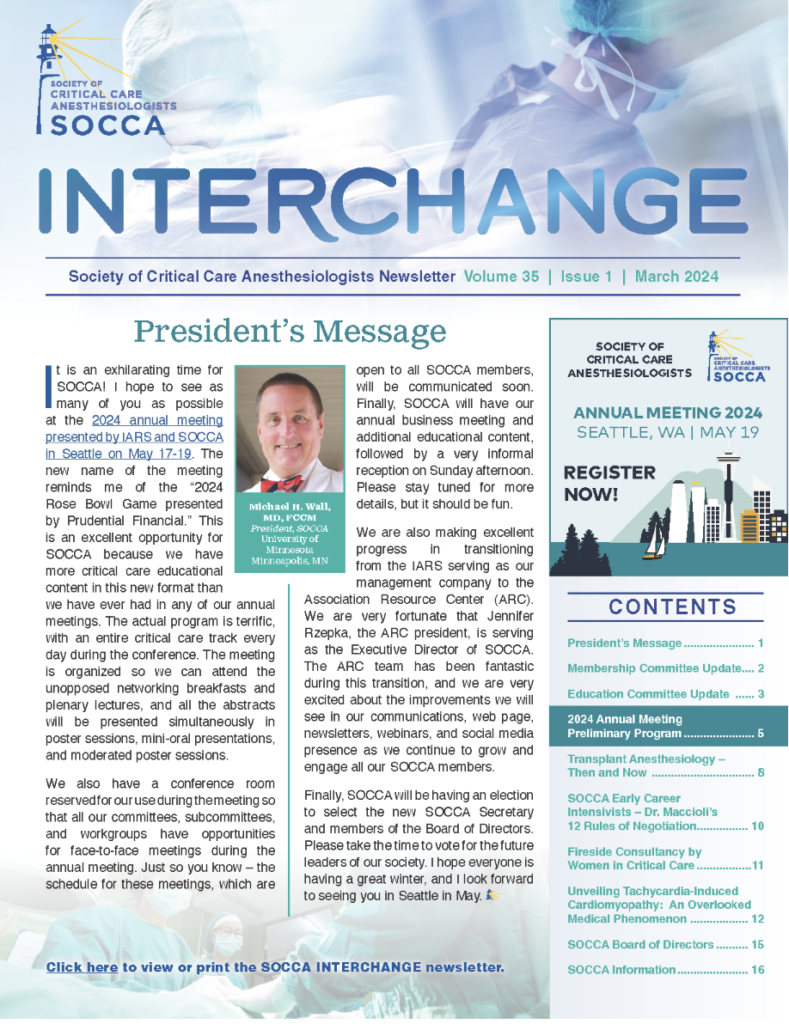Re-Thinking the Anesthesia Rotation
To augment recruitment to our specialty, we need to start at the grassroots. The COVID-19 pandemic shed light on a lack of critical care training among practicing anesthesiologists, as well as lack of appreciation for the specialty in the global medical community. A large contributing factor is the myopic perspective of our specialty offered on the standard boilerplate anesthesiology rotation. Medical student exposure to anesthesiology is almost exclusively dedicated to intubation and the role of the intraoperative provider: a rote sequence of injections and dials, staying quiet so as not to wake the beast across the drapes. We love to show off our cheap thrills: the magic of propofol, the placement of arterial lines, and we stick to cheeky truisms: “physiology and pharmacology in action,” “our patients are 100% compliant!”, “we protect patients from the surgeon!” But in doing so, we are selling ourselves short. It’s time to draw back the curtain and show them how much the role of a modern-day anesthesiologist and intensivist can transcend this role.
Continue Reading…


































